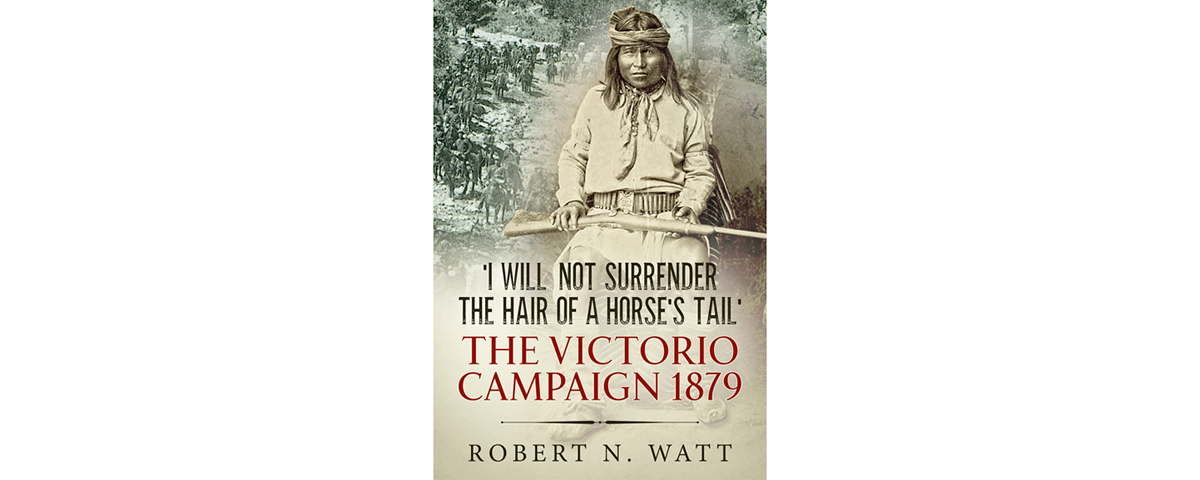‘I Will Not Surrender the Hair of a Horse’s Tail’: The Victorio Campaign, 1879, by Robert N. Watt, Helion & Co., Solihull, U.K., 2018, $49.95
In 1880 the Chihenne Chief Victorio, among the greatest Apache military strategists of his time, spoke the words that inspired this book’s title when confronted by Col. Edward Hatch of the 9th U.S. Cavalry. Watt describes the ensuing campaign in an exceptionally detailed narrative enriched with 18 period photos, numerous illustrations and plenty of superb maps.
Born circa 1809 in what would become New Mexico, Victorio grew up during a period of increasing hostility between Apaches and encroaching American and Mexican settlers. The federal “concentration policy”—designating that all Apaches live on a single reservation instead of several—only exacerbated tensions. In its justification the government cited the continued resistance of the Chiricahua war leader Geronimo, a particularly divisive figure in the history of the Apache wars, and his use of the Chihenne reservation at Ojo Caliente as a staging ground for raids down into Mexico. Compounding problems for the Apaches, a deadly feud soon erupted among those bands crowded onto the single reservation at San Carlos, Arizona Territory.
In September 1877 Victorio led most of his people out of San Carlos, stating his desire to return to relative peace in their former haunts at Ojo Caliente. At first they engaged in little more than horse-stealing raids to support themselves. But when self-sufficiency seemed out of reach, a desperate Victorio declared war on the United States in August 1879.
Victorio’s warriors, never more than 150 in number, inflicted devastating losses on the pursuing 9th Cavalry troopers, citizen volunteers and Mexican troops before taking refuge in the remote ranges of northern Mexico. Small wonder the Apaches have been described as “the most dangerous antagonists in the world.”
—David Saunders





